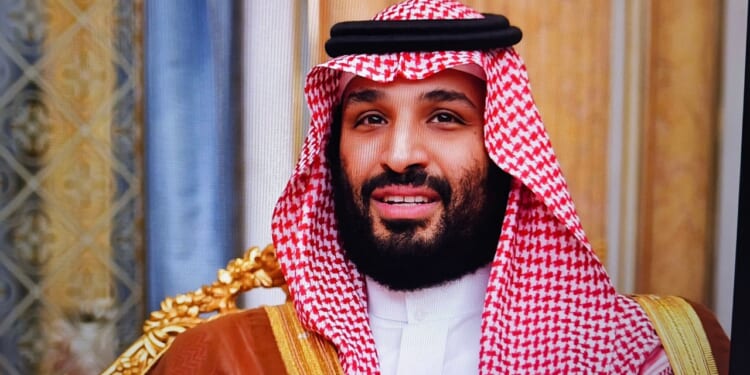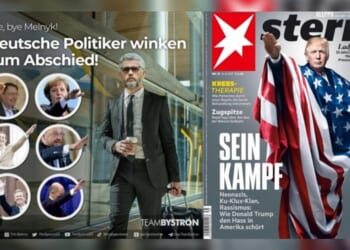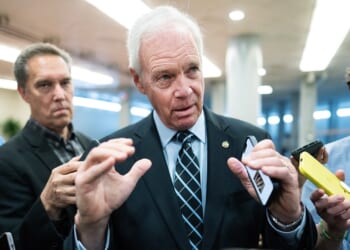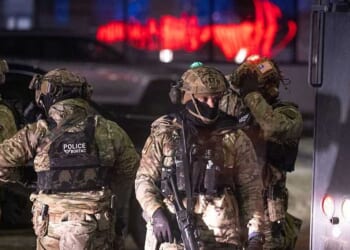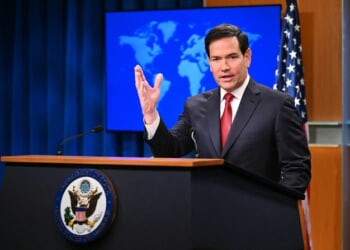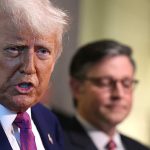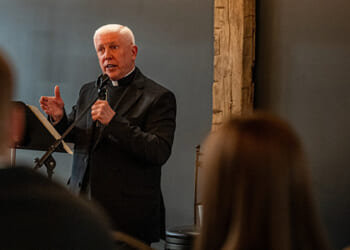US-Saudi ties need real momentum behind them, not just a series of business deals and continued discussion about Israeli normalization.
As Saudi crown prince Mohammed bin Salman touches down in Washington on November 18 for his first visit to the United States in seven years, the stakes transcend ceremonial pomp. This summit arrives amid urgent pre-visit coordination, as evidenced by Saudi Defense Minister HRH Khalid bin Salman’s talks with Secretary of State Marco Rubio and Treasury Secretary Scott Bessent’s discussions with Saudi sovereign wealth fund leaders. Yet, behind the scheduled arrival ceremonies, deal signings, and lavish dinners lies a fragile equilibrium; can Washington and Riyadh deepen their strategic cooperation without compromising core principles that could destabilize the Middle East?
The bilateral agenda must anchor itself in two non-negotiable realities. First, Saudi Arabia’s pursuit of regional security must remain decoupled from Israeli normalization. While the Trump administration fixates on Saudi-Israeli ties as a presidential legacy, Riyadh rightly insists that Palestinian self-determination is the bedrock of credible peace.
The kingdom’s position is quite firm; recognizing Tel Aviv without a tangible path to Palestinian statehood is premature, and that deserves respect. Pressuring Mohammed bin Salman toward a rushed normalization risks shattering US-Saudi relations and eroding American credibility throughout the Arab world.
Simultaneously, US-Saudi security cooperation must advance along a parallel track that addresses Riyadh’s legitimate defence needs without entangling Israel, where the much-discussed defence pact could transform regional deterrence. While at the same time offering the Saudi’s protection against aggression and reassuring US allies. Riyadh’s goal isn’t provoking an arms race but establishing a sustainable security architecture, a shared interest for both capitals. This may include finalizing the long-anticipated F-35 fighter deal, which Trump recently confirmed as “under consideration” ahead of the crown prince’s visit.
Equally critical is advancing Saudi Arabia’s economic diversification, where its civil nuclear program serves as a linchpin. Vision 2030 hinges on transitioning from oil dependence to a knowledge economy, with nuclear energy powering carbon-free electricity, water desalination, and the growing number of cities. Yet, this requires US cooperation on technology transfer under the non-proliferation safeguards, while addressing Saudi Arabia’s demand for the full uranium fuel cycle, which includes domestic mining and enrichment capabilities. Here, American interests in countering strategic competitors must align with global security imperatives. Handled wisely, this partnership could serve as a model for how great powers support their allies’ development without fueling proliferation risks.
The November 19 US-Saudi investment summit at the Kennedy Center must transcend photo-ops. While Riyadh’s earlier direct investment pledge faces re-prioritization, President Trump will seek concrete commitments on some energy, tech, and infrastructure deals that remain vital, but tangible project launches must navigate realities beyond “business matchmaking.” The likely presence of BlackRock’s Larry Fink and Nvidia’s Jensen Huang signals high stakes; yet, success hinges on aligning ambitions with on-the-ground feasibility.
Washington must recognize that Riyadh’s strategic value lies not in symbolic gestures toward Israel but in its capacity to drive regional de-escalation, economic transformation, and inclusive integration. As the crown prince and the president convene in the Oval Office, the world will watch not only for signed agreements but also for an articulated vision behind them. F-35 deals or investment pledges won’t measure a successful summit. Instead, the meeting will be judged by whether it charts a path toward security, sovereignty, and human dignity for all, and that is the only legacy worth pursuing.
About the Author: Abdulla Al Junaid
Abdulla Al Junaid is a geopolitical columnist and commentator in Middle Eastern and international media. He is the former Department Head for Analysis and Policies at the National Unity Party in Bahrain, the former deputy director of MENA2050, an advisory board member of the German-Arab Friendship Association (DAFG), and a permanent committee member of the Germany-GCC Annual Conference on Security and Cooperation. He was a guest speaker at the German-GCC Annual Conference on Security & Cooperation, the Herzliya Conference, and the Abu Dhabi Strategic Forum. He is also an executive partner at INTERMID Consultancy (Bahrain).
Image: Fotofield / Shutterstock.com.

